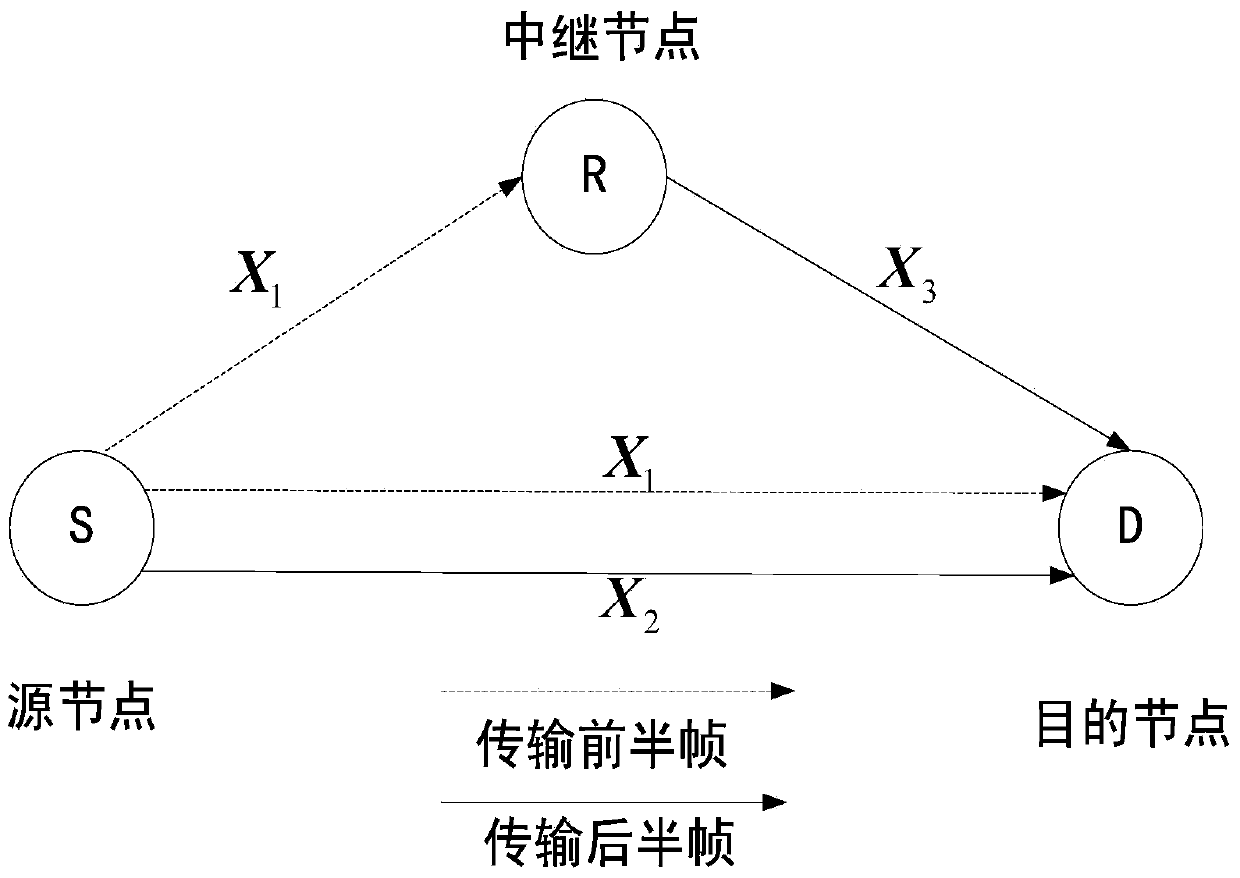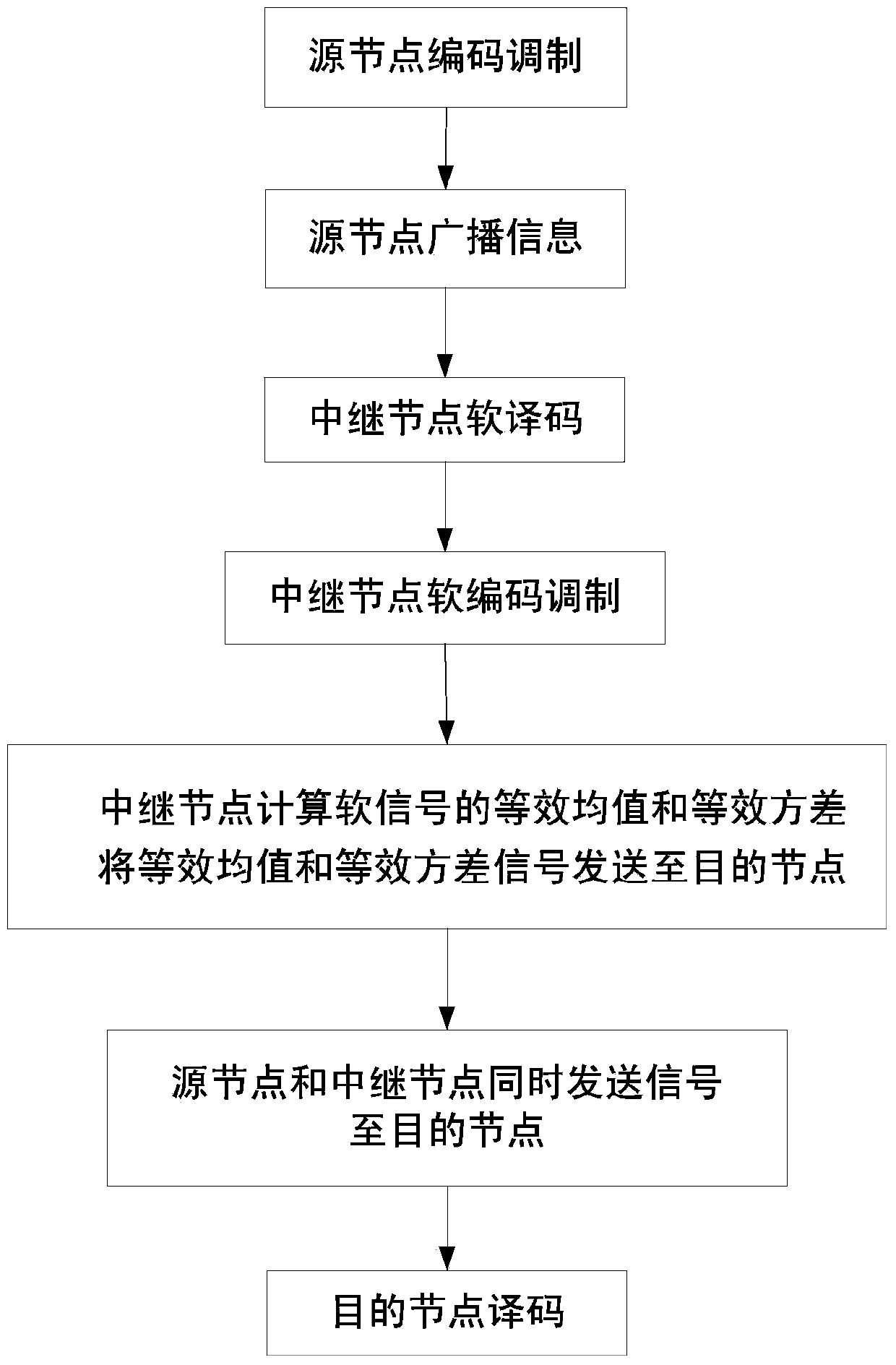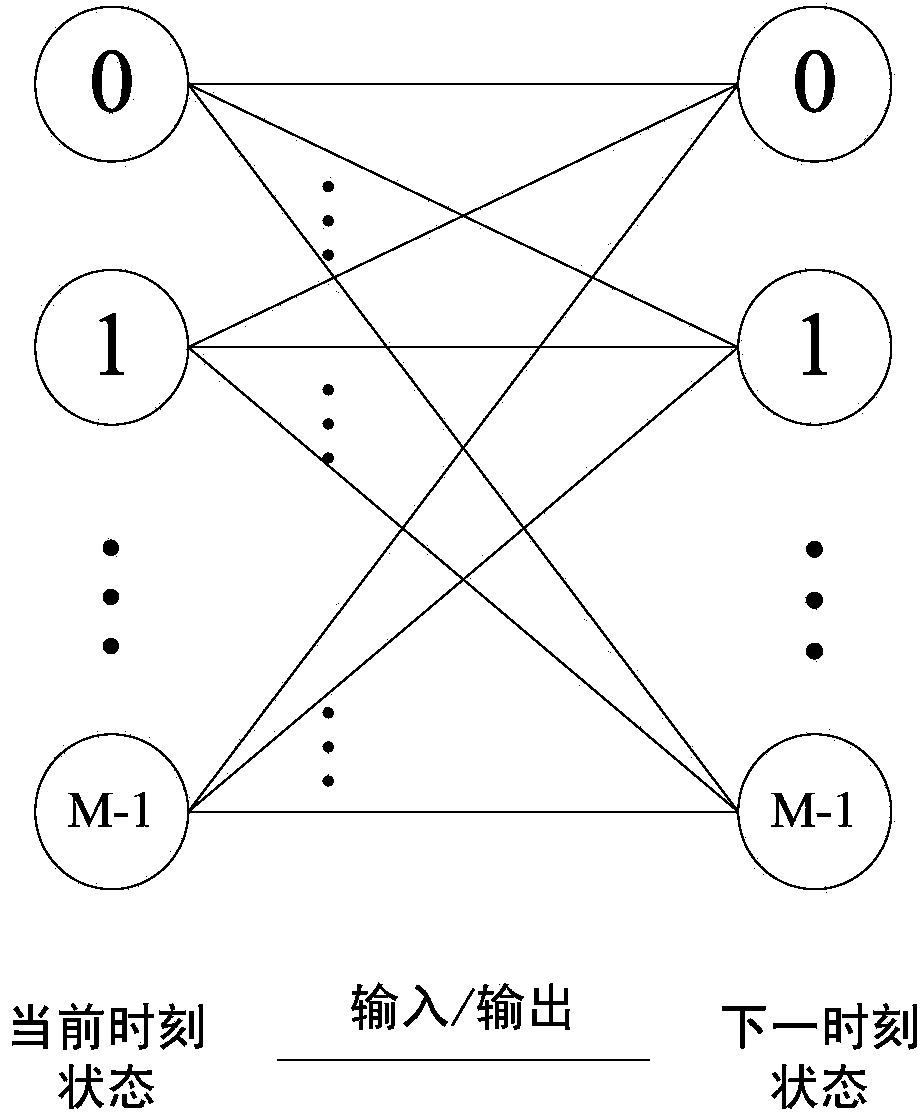Distributed space-time trellis code relay transmission method based on soft information
A transmission method and soft information technology, applied in the field of communication, can solve the problems affecting network frame error rate performance, error propagation, low spectral efficiency, etc., to improve network frame error rate performance, improve frame error rate performance, and suppress error propagation. Effect
- Summary
- Abstract
- Description
- Claims
- Application Information
AI Technical Summary
Problems solved by technology
Method used
Image
Examples
Embodiment Construction
[0035] The present invention will be further described below in conjunction with the accompanying drawings.
[0036] The invention is realized in a two-hop relay cooperative communication network.
[0037] Refer to attached figure 1 , the two-hop relay cooperative communication network of the present invention is composed of a source node S, a relay node R and a destination node D. The frame communication process is divided into the first half frame time and the second half frame time. The dotted line in the figure indicates that the source node broadcasts X to the relay node and the destination node in the first half frame time 1 , the solid line indicates that the source node sends a signal X to the destination node in the second half frame time 2 , and the relay node sends soft decoding and re-encoded soft signal X to the destination node 3 . The destination node performs decoding after receiving a frame signal.
[0038] Refer to attached figure 2 , the step that th...
PUM
 Login to View More
Login to View More Abstract
Description
Claims
Application Information
 Login to View More
Login to View More - R&D
- Intellectual Property
- Life Sciences
- Materials
- Tech Scout
- Unparalleled Data Quality
- Higher Quality Content
- 60% Fewer Hallucinations
Browse by: Latest US Patents, China's latest patents, Technical Efficacy Thesaurus, Application Domain, Technology Topic, Popular Technical Reports.
© 2025 PatSnap. All rights reserved.Legal|Privacy policy|Modern Slavery Act Transparency Statement|Sitemap|About US| Contact US: help@patsnap.com



